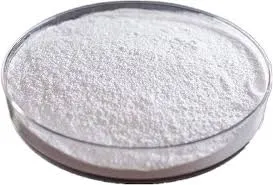
Dec . 09, 2024 18:33 Back to list
Applications and Benefits of Hydroxyethyl Cellulose in Various Industries
The Versatile Uses of Hydroxyethyl Cellulose
Hydroxyethyl cellulose (HEC) is a non-ionic, water-soluble cellulose derivative that has gained prominence across various industries due to its unique properties. As a modified form of cellulose, it possesses excellent thickening, stabilizing, and film-forming capabilities, making it an invaluable ingredient in numerous applications. From cosmetics to the construction sector, HEC continues to prove its versatility and adaptability.
1. Cosmetics and Personal Care Products
One of the most prevalent uses of hydroxyethyl cellulose is in the cosmetics and personal care industry. HEC serves as a thickening agent in creams, lotions, gels, and other topical formulations. Its ability to enhance the texture and stability of products is crucial in providing consumers with a pleasant and effective user experience. For example, in hair care products, HEC helps to improve viscosity and offers conditioning benefits, ensuring that the formulations spread easily and evenly on the hair.
Moreover, HEC is an effective emulsion stabilizer, helping to prevent the separation of oil and water phases in products like moisturizers and sunscreens. Its film-forming properties also play a critical role in makeup formulations, such as foundations and mascaras, improving adherence and longevity on the skin. Because it is mild and non-irritating, HEC is suitable for sensitive skin applications, reinforcing its popularity in the cosmetic realm.
In the pharmaceutical sector, hydroxyethyl cellulose is utilized as a binder, thickener, and controlled-release agent in various drug formulations. HEC is often incorporated into tablet and capsule formulations to enhance the cohesive properties of the ingredients, ensuring that the active ingredients are evenly distributed and released at the desired rate. Due to its non-toxic nature, HEC is regarded as safe for use in pharmaceutical applications, making it a preferred choice for oral, topical, and even injectable medications.
Additionally, HEC finds use in creating hydrogels for drug delivery systems. These hydrogels can encapsulate active pharmaceutical ingredients, facilitating a controlled release over time. This application is especially significant in developing applications for chronic diseases, where sustained drug delivery can lead to improved patient compliance and therapeutic outcomes.
hydroxy ethyl cellulose uses

3. Construction Industry
Another significant application of hydroxyethyl cellulose is in the construction industry, particularly in the formulation of mortars, paints, and adhesives. HEC acts as a thickener and water-retention agent, ensuring that these products maintain the desired consistency and workability during application. In cement-based formulations, for example, HEC helps to improve adhesion and prevents the premature drying of the mixture, allowing for better performance and durability in construction projects.
In paints, HEC contributes to improved viscosity and flow properties, ensuring smooth application and reducing the likelihood of drips and runs. Furthermore, its ability to enhance the suspension of pigments and fillers means that the final product has a more uniform appearance and better coverage. This versatility makes HEC an essential additive in the development of high-performance construction materials.
4. Food Industry
Hydroxyethyl cellulose is also utilized in the food industry, primarily as a thickening and stabilizing agent. It is commonly found in sauces, dressings, and various processed foods, where it helps to improve texture and maintain product consistency. By preventing the separation of ingredients and reducing syneresis (the expulsion of liquid from a gel-like substance), HEC ensures that food products maintain their desired quality throughout their shelf life.
As a food additive, HEC is considered safe and is often marked with the E number E463 in Europe. Its ability to create a desirable mouthfeel and enhance sensory properties further contributes to its desirability in food formulations.
Conclusion
Hydroxyethyl cellulose is a remarkable ingredient with a diverse range of applications across various industries. Its unique properties, including thickening, stabilizing, and film-forming abilities, make it an essential component in cosmetics, pharmaceuticals, construction materials, and food products. As industries continue to evolve and innovate, the demand for versatile and multifunctional additives like HEC is likely to increase, ensuring its relevance for years to come. Whether enhancing consumer products or improving formulations, hydroxyethyl cellulose remains a valuable asset in modern manufacturing and product development.
-
Versatile Hpmc Uses in Different Industries
NewsJun.19,2025
-
Redispersible Powder's Role in Enhancing Durability of Construction Products
NewsJun.19,2025
-
Hydroxyethyl Cellulose Applications Driving Green Industrial Processes
NewsJun.19,2025
-
Exploring Different Redispersible Polymer Powder
NewsJun.19,2025
-
Choosing the Right Mortar Bonding Agent
NewsJun.19,2025
-
Applications and Significance of China Hpmc in Modern Industries
NewsJun.19,2025







